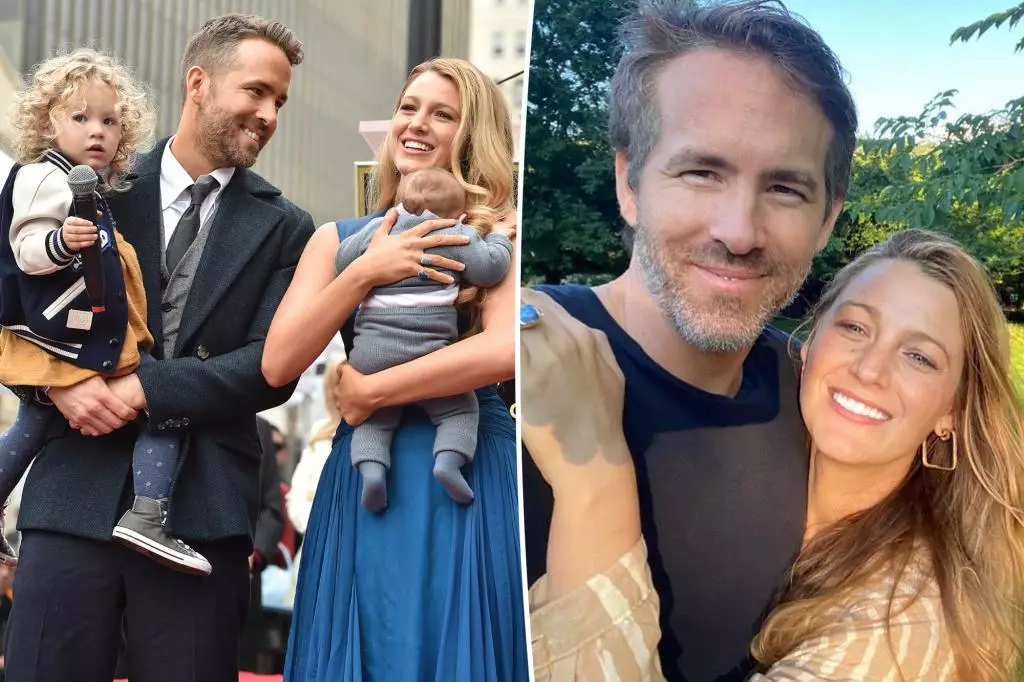Ryan Reynolds and Blake Lively, two prominent figures in Hollywood, have found themselves in a unique position as parents of four children. The balancing act between their celebrity lifestyles and their desire to provide their children with a grounded upbringing is a narrative that resonates with many. In recent interviews, both actors shared their thoughts on parenthood and what it means to raise kids in a world rife with privilege and expectations.
As Reynolds discussed in a recent interview with *The Hollywood Reporter*, he and Lively share the goal of offering their children as “normal a life as possible.” This idea is compelling, particularly considering the stark contrast between their own childhoods and the lives their children lead now. Both Reynolds and Lively hail from modest beginnings, yet their success has brought them a level of privilege that is difficult to ignore.
Reynolds openly acknowledges moments where he reflects on how different their children’s lives are compared to his own formative years. The memories of a simple life—where takeout was a luxury—surfaced in his discussions. Despite these realizations, Reynolds stressed the importance of not burdening his children with the weight of those reflections. Instead, he recognizes that each generation experiences its own unique reality. His insight into understanding that his children are not responsible for carrying the legacy of his success speaks to a mature approach to parenting in a world where expectations can run high.
One of the hallmark characteristics of Reynolds and Lively’s parenting philosophy appears to be an emphasis on empathy. In his interview, Reynolds expressed contentment with his children’s ability to empathize with others, seeing this trait as an indicator of their successful upbringing. This critical dimension of parenting reveals that they are not simply raising children in a bubble of wealth; they are instilling values that encourage understanding and kindness.
In a world that often equates success with material wealth, Reynolds and Lively are consciously steering their children toward a more meaningful understanding of what it means to connect with the broader human experience. The notion that children can grow up appreciative of their circumstances while simultaneously being aware of the hardships faced by others is a delicate balance, yet it is an essential part of their parenting journey.
The Challenge of Balancing Work and Family Life
The demands of their careers further complicate this balancing act. As Reynolds noted in a *Variety* interview segment, his work schedule can be all-consuming. He candidly shared the feelings of guilt he grapples with when missing important events in his children’s lives. The phrase “I kind of die inside” when discussing missed sports competitions encapsulates the struggle many working parents face. Time management and prioritizing moments that matter are challenges common to them all, regardless of one’s public persona.
Reynolds’ dedication to remaining present in his children’s lives reflects a broader conversation about parenthood in the modern world. The reality of juggling a high-profile career while being involved in the day-to-day lives of children is daunting. Yet, it’s this very struggle, coupled with his commitments, that shapes the father he aims to be. The acknowledgment of his limitations makes him relatable, grounding him as more than just a comedic actor but as a devoted parent earnestly trying to navigate life’s complexities.
Ryan Reynolds and Blake Lively represent a new generation of parents within the public eye. They are actively working to create an environment for their children that emphasizes normalcy, empathy, and presence. By sharing their thoughts on parenting, they contribute to a dialogue that encompasses both the challenges and triumphs faced by all parents today. The lessons they impart extend far beyond their fame; they invite reflection on the essence of raising children amid the juxtaposition of privilege and responsibility. As they continue their journey, one can only hope their approach will inspire others in similar positions to prioritize meaningful connections over superficial success.

